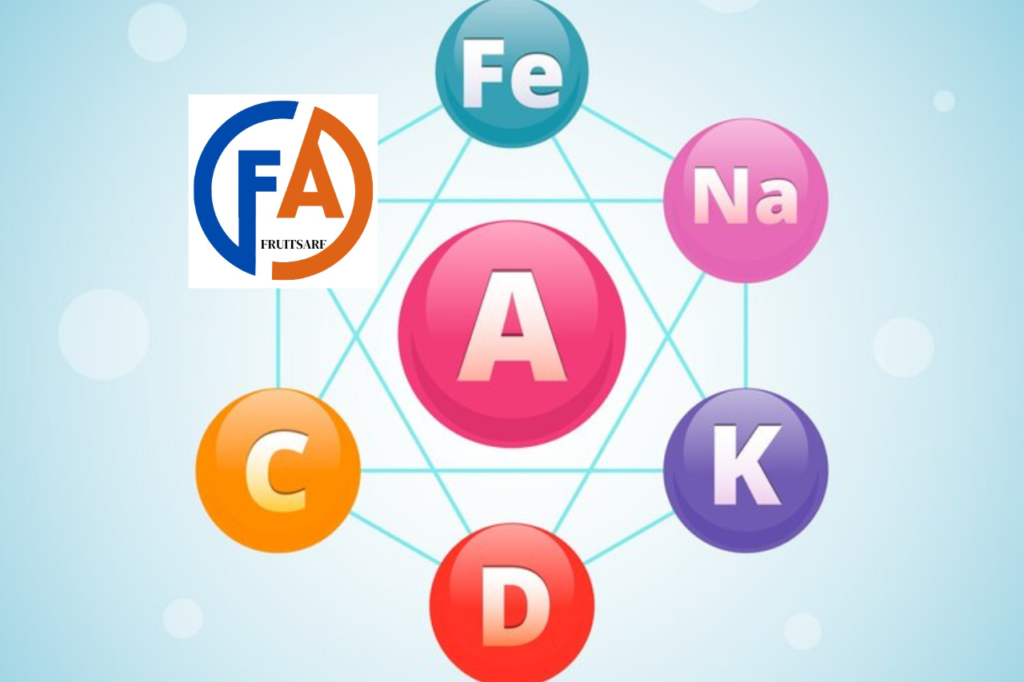Vitamin A: Benefits, Risks of Deficiency & Toxicity, and Dietary Sources
Vitamin A is an essential nutrient that plays an important role in maintaining many body functions in our body, including our vision, immune system health, and cell growth.
Vitamin A is fat-soluble vitamin that exists in two main forms
1.Retinol
2.Provitamin Carotenoids, such as Beta-Carotene

Benefits of Vitamin A
Vision Health
Vitamin-A plays an important role in the vision of eyes. The retina contains a protein called rhodopsin which play a effective role to enhance the vision of eyes.
Protein, which is very important for the vision of eyes. Vitamin-A enables the eyes to sense light and also helps in the treatment of night blindness and helps to reduce the disease in elderly people.
Immune System
Vitamin-A supports our immune system and plays an important role in the production and functioning of the white blood cells in our immune system.
Vitamin-A strengthens our immune system, especially helping to maintain the integrity of mucosal surfaces such as the respiratory tract and the gastrointestinal and urinary tracts, which act as barriers against pathogens.
Skin Health
The vitamin plays an important role in promoting healthy skin and is therefore widely used in skin care products.
It plays an important role in cell production and elimination of dead cells and prevents them from accumulating. Vitamin-A products like retinoids are commonly used to treat acne, wrinkles, and other skin conditions.
Reproductive Health
Vitamin A plays a key role in the reproductive activities of men and women. It also plays basic role in increasing sperm production in men and fetal development during pregnancy in women.
Bone Health
Vitamin A helps in bone remodeling, it breaks down old tissue and creates new tissue. Suitable consumption of vitamin -A may help keep bone density and reduce the risk of osteoporosis.

Deficiency of Vitamin A
Vitamin A deficiency is a global problem, especially in developing countries where good food and a healthy environment are not available. Common symptoms of vitamin A deficiency include:
Night blindness
The most common disease caused by vitamin-A deficiency is night blindness, which first appears as difficulty seeing in low-light conditions, then gradually becomes complete blindness.
Dry Eyes
Deficiency of vitamin-A can lead to a lack of tears in the eyes, dryness of the tears, sleepiness of the eyes swelling of the eyes, and itch’s disease.
Increased Susceptibility to Infections
Vitamin A deficiency weakens the human immune system, which can lead to dangerous diseases such as measles and respiratory infections in humans
Poor Growth
Children’s growth and development are affected and maturation is delayed in children. Vitamin-A deficiency can result in irreversible damage to the eyes, known as xerophthalmia, and increased mortality, particularly among young children and pregnant women.
Toxicity of Vitamin A
Vitamin A is essential for health. Consuming excessive amounts can lead to toxicity, known as hypervitaminosis A.
Important toxicity usually occurs from consuming large doses of vitamin -A extras, while chronic toxicity is more commonly associated with long-term consumption of high-dose supplements.

Symptoms of vitamin A toxicity
1. Nausea and vomiting
2. Headache
3. Dizziness
4. Blurred vision
5. Bone pain
6. Liver damage
Dietary Sources of Vitamin A
Vitamin A is found in various foods, both of animal and plant origin. Animal sources of -A include
1. Liver
2. Fish oil
3. Eggs
4. Dairy products
Plant sources of vitamin A contain provitamin carotenoids, which the body converts into active vitamin A. These include:
1. Carrots
2. Sweet potatoes
3. Spinach
4. Kale
5. Mangoes

Recommendations for Intake
The Recommended Dietary Allowance (RDA) for vitamin-A varies depending on age, gender, and life stage. For adults, the RDA is naturally around 700 to 900 micrograms per day for men and 600 to 700 micrograms per day for women. Pregnant and breastfeeding women may need higher doses to support fetal development and milk production.
Vitamin A is very important for a balanced diet rather than relying solely on supplements, as excessive intake can lead to toxicity. Deficiency of Vitamin-A mainly pregnant women and young children in developing countries, supplementation programs may be necessary to prevent serious health consequences.
Conclusion
Vitamin A is an essential nutrient that plays a vital role in maintaining various aspects of health. It includes vision, immune function, and skin health.
Deficiency of vitamin-A can lead to serious health problems and toxicity from excessive intake can also cause harm.
Therefore, it is important to consume vitamin-A in appropriate amounts from a balanced diet and, when necessary, under the guidance of healthcare professionals. By ensuring adequate intake of vitamin-A, individuals can support overall health and well-being.
Click here for more information
FAQs about Vitamin A
What are the main benefits of vitamin-A?
Vitamin A is essential for vision, immune system support, skin health, reproductive health, and bone health.
What are the symptoms of vitamin-A deficiency?
Symptoms include night blindness, dry eyes, increased susceptibility to infections, and poor growth in children.
Can you consume too much vitamin-A?
Yes, excessive intake can lead to toxicity, known as hypervitaminosis A, with symptoms like nausea, headache, and liver damage.
What are the best dietary sources of vitamin -A?
Animal sources include liver, fish oil, eggs, and dairy, while plant sources include carrots, sweet potatoes, spinach, kale, and mangoes.
